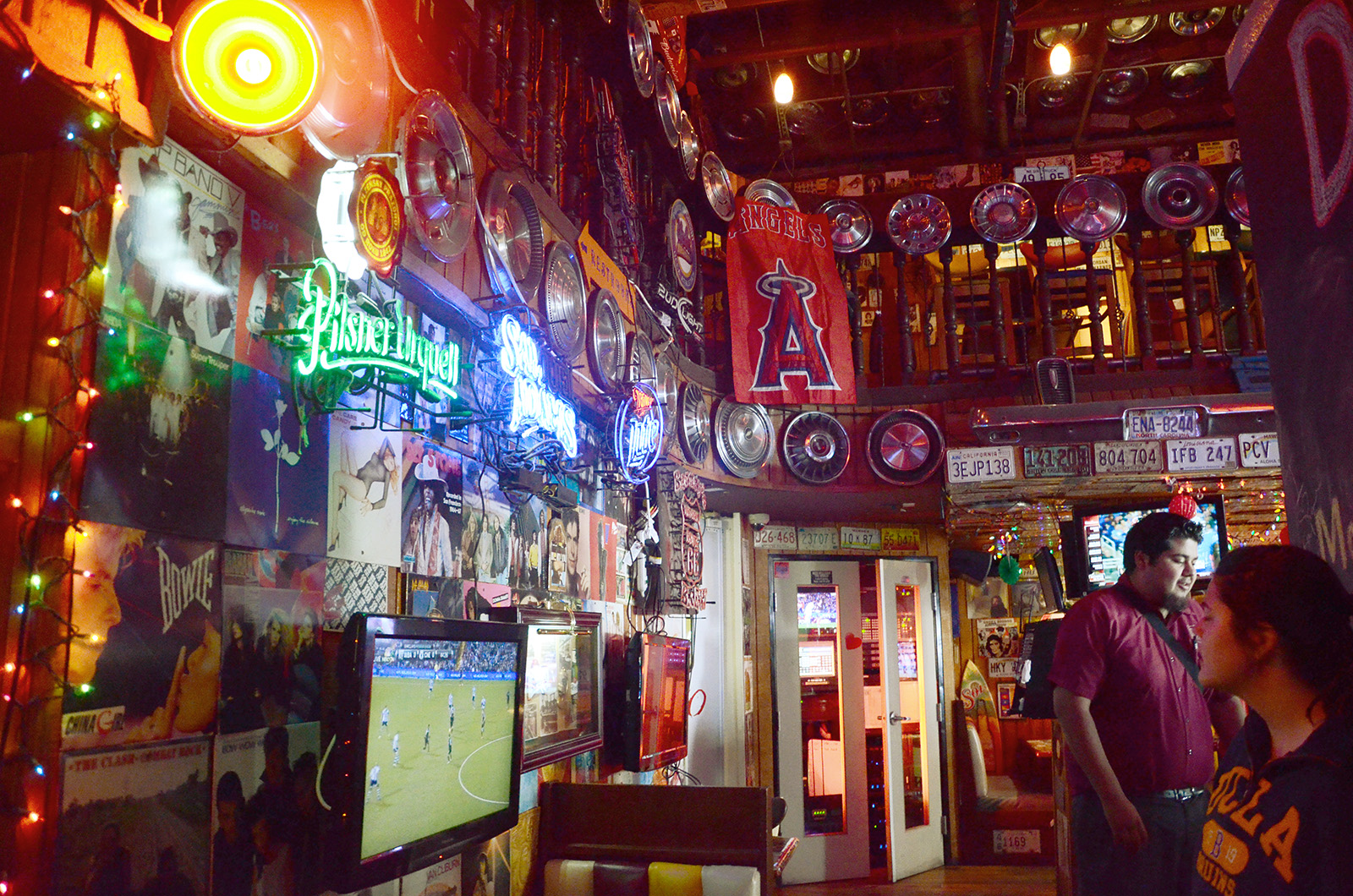Pravin Visakan: Westwood’s alcohol permit process needs improvement

(Daily Bruin file photo)
By Pravin Visakan
Feb. 2, 2017 10:22 p.m.
For students, the absence of alcohol doesn’t have to mean a bad time. But for many businesses, the inability to sell beer, wine or distilled spirits can end the party before it even begins.
The city of Los Angeles is not known for its simple and efficient bureaucracy. On top of a permit process by the California Department of Alcoholic Beverage Control, the Los Angeles County Department of Regional Planning requires its applicants to attend hearings. The whole process can take over a year. Up-and-coming local businesses such as Spireworks and D1 Cafe have faced difficulties establishing themselves in Westwood because of such bureaucratic sluggishness. With this increased burden, Westwood is less attractive to potential entrepreneurs, and the community loses out.
Overhauling any part of such a large and complex system will take time, money and serious legislation. However, the situation can immediately improve with a change in the attitude of the Westwood Neighborhood Council, a board that advises the Los Angeles City Council. The WWNC should make the alcohol application process easier. It could begin by specifying a set of more consistent and less arbitrary guidelines.
The current system clearly isn’t working. David Houston, owner of Barney’s Beanery in Westwood, said he spent a year and a half sending in applications and attending hearings. “It seemed to take a lot of time, and cost a lot of money,” he said of the process. The California ABC advises business owners to expect a period of about 90 days for a state license. But in Westwood, the process can take much longer because of local politics. The extra wait can scuttle any plans laid by a prospective business – for both openings and construction.
Conditions on the sale of alcohol are often attached to permits when they are awarded. According to Houston, regulations require him to provide special training for his employees. Again, the time taken to properly fulfill these demands results in increased costs and drives away businesses.
[Related: Westwood business owners struggle to obtain liquor licenses]
Of course, many regulations on the sale of alcohol are reasonable. Selling alcohol to underage drinkers is prohibited, and patrons must show some form of identification in order to drink. However, in its recommendation to the city council with respect to the alcohol permit application of D1 Cafe, the WWNC laid out rules that go a bit beyond common sense. The cafe’s sales on weekends are restricted to two hours per day – between 10 a.m. and 12 p.m. The cafe can only have two television screens and no arcade-style games are allowed. Hookah is explicitly banned, though it is not clear how this is relevant in a recommendation for an alcohol permit.
With caveats, the neighborhood council motioned to give the city council approval to allow D1 Cafe to sell beer, wine and distilled spirits – in November. In its December meeting, however, the council went back and changed its recommendation to a stricter permit that allowed only for beer and wine sales.
This local hiccup adds to the inconsistency and difficulty faced by businesses. In a recent interview, Sandy Brown, vice president of the WWNC, stated that the owner’s supposed inexperience with alcohol sales and inability to speak English contributed to the decision. However, according to D1’s project manager, the owner in question has a history of running eight restaurants in his home country of Iran and runs the business with his spouse, who has knowledge of our local dialect. Knee-jerk objections like these make the council appear overly biased against businesses that want to sell alcohol.
The council has also argued that being too lax with permits would lead to an oversaturation of Westwood’s alcohol market. Andrew Thomas, executive director of the Westwood Village Improvement Association, said that the WWNC was less supportive when alcohol vendors were already available, as in the case of CityTarget’s application several years ago. However, the presence of alcoholic beverages on a shelf in the local Ralphs should have no bearing on the recommendation. Thomas states that the high markup and increased opportunities for dining that characterize alcohol sales help drive the food economy. Vendors should be allowed to compete with each other.
Additionally, the proximity of applicants to UCLA and the easier access to alcohol they may provide might influence the council’s decisions. There’s no denying binge drinking poses a severe health risk to students, including those who are underage. But poor drinking habits are an issue rooted in campus culture. As long as a channel exists for alcohol to flow to students, it will find a way to do so. Banning all sales of alcohol outright is, of course, an antiquated and dangerous tactic. Efforts to combat dangerous drinking cultures are best carried out with a more direct look at how college life functions, and should focus more on the attitudes around drinking.
Currently, these recommended restrictions on alcohol sales seem to be determined on a case-by-case basis, buried in the minutes of board meetings. In order to cut down on the confusion, the WWNC should create a definitive set of rules it expects alcohol vendors to follow. Knowledge of what to expect beforehand would help businesses like D1 Cafe save time. The rules themselves should avoid prudishness for the sake of prudishness, and convey a practical benefit to the community.
The recommendations of the WWNC affect the local atmosphere beyond the scope of intoxicating beverages. The presence or absence of local eateries determines what services are available to students. It’s important to foster business, so the WWNC should revise how it looks at policies and let the party go on.


